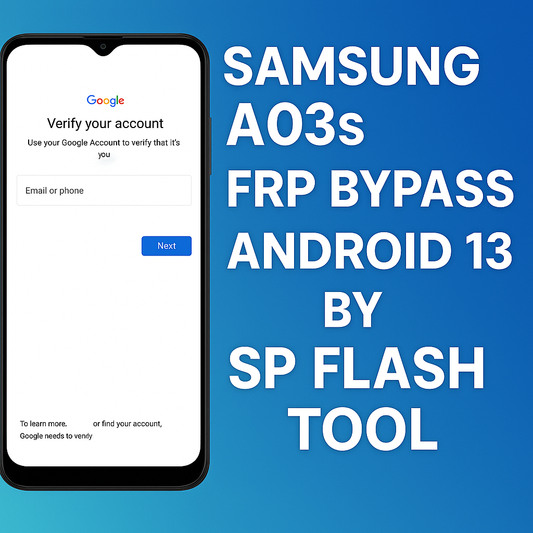In the Android ecosystem, KernelSU is a relatively new but powerful solution for users who want deeper system access than traditional rooting methods. Unlike typical rooting tools, KernelSU allows root access directly at the kernel level, which provides users and developers with unprecedented control over Android’s system processes and functionalities.
This guide will walk you through everything you need to know about KernelSU—from its unique features and benefits to installation, usage, and comparisons with other rooting tools.
What Makes KernelSU Unique?
KernelSU stands out because it operates at the kernel level, meaning it grants root access at the core of the Android operating system. This enables a more secure and efficient way to manage root permissions compared to tools that rely on system or app-level modifications, such as Magisk. The kernel-based root approach allows KernelSU to access, modify, and secure system functions with more control and efficiency.
KernelSU is particularly beneficial for developers, security researchers, and power users who need deeper access to Android’s core functionalities without sacrificing stability or security.
Core Features of KernelSU
KernelSU is packed with features designed to enhance the root experience:
- Root Access Control: KernelSU provides fine-grained control over which apps and processes have root access, allowing users to specify root permissions down to the application level.
- Enhanced Security: Unlike some other rooting solutions, KernelSU emphasizes security through sandboxing and controlled permissions, making it safer for advanced modifications.
- Broad Compatibility: KernelSU is compatible with both custom and stock kernels, giving it the versatility to work across various devices.
These features make KernelSU a robust tool for users who want complete control over their Android device without compromising security.
How KernelSU Works
KernelSU works by embedding root access within the Android kernel, the core part of the OS that manages hardware resources and controls essential processes. By implementing root functions at this level, KernelSU bypasses limitations commonly found in application-based root solutions. It achieves this through:
- Kernel-Level Code Injection: KernelSU injects root privileges directly into the kernel, giving it access to system operations that application-level rooting cannot modify.
- Root Sandbox: To enhance security, KernelSU uses a sandboxing method to isolate root permissions for specific applications, allowing for better management and minimized security risks.
This approach provides a more seamless and efficient root experience compared to conventional rooting tools that operate at a higher system level.
Benefits of KernelSU for Advanced Users
KernelSU is designed for users who require extensive control over system files and device processes. Benefits include:
- Increased Flexibility: Rooting at the kernel level provides greater flexibility for customizations that are otherwise inaccessible.
- Improved Performance: Direct kernel modification means fewer background processes, leading to faster performance and better resource management.
- Enhanced Customization: Users can make deep modifications to the Android system, allowing for more robust customization options.
These advantages make KernelSU ideal for developers, security researchers, and Android enthusiasts who demand precise control over their devices.
KernelSU vs. Magisk: Key Differences
Magisk is a popular rooting tool that offers systemless root, allowing users to modify their device without altering the system partition. However, KernelSU and Magisk serve different purposes:
| Feature | KernelSU | Magisk |
|---|---|---|
| Root Level | Kernel-based | Systemless root |
| Security | Stronger control, root sandbox | Limited sandboxing |
| Flexibility | Allows deeper modifications | Great for basic customization |
| Compatibility | Requires compatible kernels | Works on most Android devices |
KernelSU is best suited for users who need kernel-level control, while Magisk is a more user-friendly option for general root access and app customization.
Compatibility and Device Requirements
KernelSU works on devices with compatible kernels that support kernel-based root access. It is generally compatible with Android 8.0 (Oreo) and above but requires either a custom kernel that supports KernelSU or a rooted environment where KernelSU can function effectively. Rooting may also be needed to access kernel features that are otherwise restricted.
KernelSU for App Development and Testing
For developers, KernelSU offers a powerful environment for:
- Feature Testing: KernelSU’s deep system access is ideal for testing apps that require privileged permissions.
- Debugging and Optimization: KernelSU allows developers to inspect system processes at a granular level, streamlining debugging and performance testing.
- Enhanced Testing Flexibility: Developers can test multiple configurations and manage root permissions effectively across different testing scenarios.
These benefits make KernelSU a valuable tool for developers who need precise control for development and debugging.
KernelSU for Security Enthusiasts
KernelSU is also highly valued by security researchers due to its ability to:
- Isolate Security Vulnerabilities: KernelSU can help identify and test potential vulnerabilities within the Android kernel.
- Enhance Security Configurations: With KernelSU, users can modify kernel parameters to tighten security, improving system integrity.
- Custom Patches: Researchers can apply custom patches that address specific security needs.
These capabilities provide a powerful environment for security research and testing.
How to Install and Set Up KernelSU
Here’s a step-by-step guide to getting started with KernelSU:
- Download the Custom Kernel: If KernelSU requires a custom kernel for your device, download a compatible version.
- Flash the Kernel: Using a recovery tool like TWRP, flash the custom kernel onto your device. Ensure your device is compatible with the custom kernel.
- Install KernelSU: After flashing, install the KernelSU package on your device.
- Configure Root Access: Open KernelSU and set up root access controls based on your preferences, specifying which apps and processes have root access.
Following these steps will prepare your device for kernel-level modifications with KernelSU.
Configuring Root Permissions with KernelSU
One of KernelSU’s core strengths is its control over root permissions. You can manage which applications have access to root functions by configuring permissions in KernelSU’s settings. This configuration ensures only trusted apps can use root permissions, enhancing device security while providing the flexibility to customize your Android experience.
Managing Root Access for Specific Applications
KernelSU allows you to:
- Enable/Disable Root: Easily toggle root access for specific apps.
- Restrict Permissions: Set limitations on what apps can access through root, such as network access or file modifications.
- Configure Security Settings: Customize how apps access the root sandbox to prevent unauthorized system changes.
These features help balance security with functionality, giving you control over how applications utilize root permissions.
Popular Use Cases for KernelSU
KernelSU has several practical applications for different users:
- System Customization: Modify kernel parameters for improved performance, battery life, or visual customization.
- App Testing: Developers can test app compatibility with rooted systems, especially for apps that require privileged access.
- Security Research: Researchers can use KernelSU to explore vulnerabilities or test security measures.
These use cases make KernelSU an appealing option for advanced Android users who want granular control.
Troubleshooting KernelSU Installation and Usage Issues
If you experience issues with KernelSU, here are a few tips:
- Verify Kernel Compatibility: Ensure you are using a compatible kernel version.
- Check Root Permissions: Some functionalities require full root access, so verify that your device is fully rooted.
- Reboot and Retry: Kernel-level modifications often need a reboot to apply changes, so restart your device after applying patches.
These troubleshooting steps can help resolve common issues with KernelSU setup and usage.
Advanced Configurations with KernelSU
For experienced users, KernelSU offers advanced configurations:
- Custom Kernel Parameters: Modify parameters for performance or power-saving settings.
- Advanced Debugging Options: KernelSU provides access to logs and debugging tools.
- Security and Privacy Tweaks: Configure privacy settings that are not accessible with other rooting solutions.
These configurations allow advanced users to tailor KernelSU for their specific needs.
Legal and Ethical Considerations of Using KernelSU
Rooting a device, especially at the kernel level, brings ethical and legal considerations:
- Developer Rights: Respect app and system developer rights by avoiding unauthorized modifications that violate terms of service.
- Privacy and Security: Ensure that root permissions are granted to trusted applications only.
- Responsible Usage: Misuse of root access can lead to unintended harm, so apply KernelSU responsibly.
By following these guidelines, users can enjoy the benefits of KernelSU while respecting legal and ethical standards.
KernelSU vs. Other Android Patching Tools
KernelSU stands out among similar tools, such as Magisk or SuperSU, because of its kernel-level access. Here’s a quick comparison:
| Tool | Root Type | Key Benefit |
|---|---|---|
| KernelSU | Kernel-level | Maximum system control, security |
| Magisk | Systemless root | Compatibility with most devices |
| SuperSU | System root | Simple root management |
KernelSU is ideal for advanced users, while Magisk and SuperSU cater to a broader audience with varying needs.
Conclusion
KernelSU is a cutting-edge tool for users who need advanced control over their Android device. By operating at the kernel level, KernelSU provides a more secure and flexible way to manage root permissions, making it an ideal choice for developers, security researchers, and power users. Whether you're looking to enhance performance, secure your device, or perform advanced testing, KernelSU offers a unique root experience with comprehensive control and reliability.
FAQs
1. Is KernelSU safe for regular Android users?
KernelSU is best suited for advanced users. While safe, it requires technical knowledge for optimal use.
2. Can KernelSU work on non-rooted devices?
KernelSU typically requires root access to function fully and is more effective on devices with a custom kernel.
3. Does KernelSU require a custom kernel?
Yes, in most cases, KernelSU requires a custom kernel that supports kernel-level modifications.
4. What are the security risks of using KernelSU?
With root access, improper configurations could expose your device to security risks. Ensure only trusted apps are granted root permissions.
5. How often is KernelSU updated?
KernelSU updates depend on community contributions, so it’s advisable to check for updates regularly.





